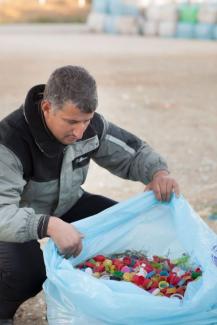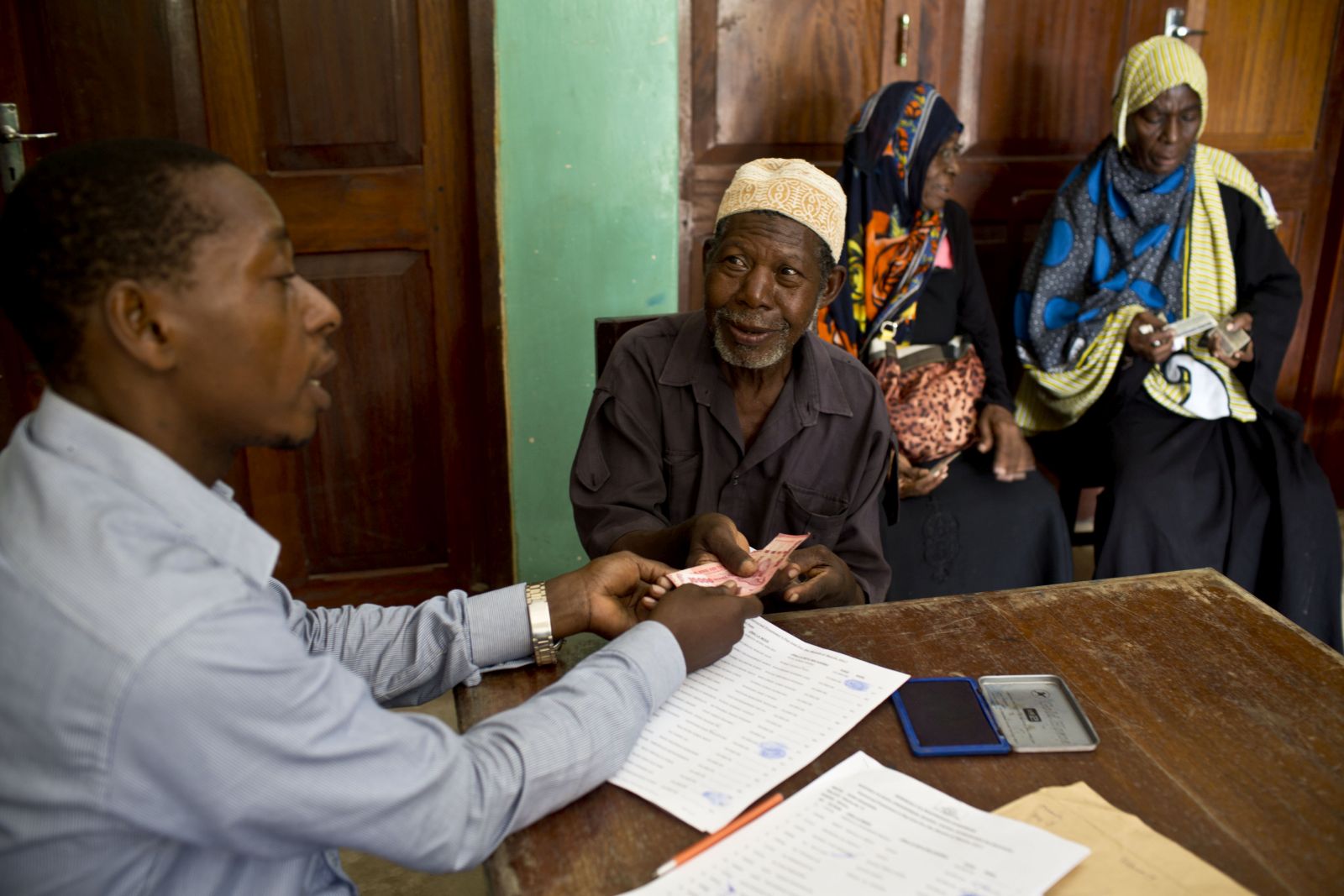Waste management
Anything but waste

If waste is not disposed of, it is not just a nuisance, it entails many risks. Landfills spoil the landscape and contaminate usable space. They become breeding grounds for disease carriers and a source of food for rats and vermin. The poorer population is particularly exposed to these kinds of risks. “Uncontrolled” waste dumps contaminate drinking water and threaten water bodies, air, soil, flora and fauna. The climate suffers too. Ten to 15% of a country’s overall greenhouse gas emissions can be prevented by good waste management and recycling.
The municipalities – generally responsible for waste disposal – are barely up to this complex task. Waste disposal “devours” a large part of their frequently scarce funds. Municipalities in developing countries spend between 20 and 50% of their budgets just on collecting waste. Nevertheless, many residents do not have access to proper disposal services. Some of the waste – mainly in the poorer settlements – is not taken away at all, and remains in the residential area.
One country that KfW Development Bank has supported since the end of the 1990s in setting up a proper waste management system is Tunisia. Since 2002 and via its own national executing agency “ANGed”, this country has gradually established a basic disposal infrastructure that reaches around 85% of the population. It mainly consists of waste transfer stations and properly regulated landfills, and fulfils the basic requirements for environmentally friendly waste disposal. In 2008, the first concepts were drafted to turn the Tunisian waste disposal system into a recycling economy, explained Wolfgang Pfaff-Simoneit, Technical Expert in the Water and Waste Management Team for MENA (Middle East/North Africa) at KfW. A recycling economy means that the raw materials used are returned in their entirety to the production process, and besides the recycling of products, emphasis is placed on reusing organic waste, which makes up 60% of the volume. The upheaval stemming from the Tunisian revolution that began in 2010 radically changed the general conditions for designing and implementing disposal plants. The population questioned local governance, and acceptance of disposal facilities fell dramatically. ANGed is now adapting to the new requirements. It is accountable to the general public for its actions and has to employ democratic forms and procedures of civil society participation. KfW is thus supporting ANGed and the Tunisian authorities in developing participatory forms of local governance (“change management”) and conducting national dialogue on waste disposal.
“Acceptance of disposal facilities improves if the volume of waste is reduced as much as possible,” explained Pfaff-Simoneit. Then the areas needed for disposal facilities can be scaled back and the environmental risks minimised. In Tunisia, the previous concept of regulated landfills failed on account of the waste properties and the climate conditions, added the KfW expert.
“Mechanical biological treatment of waste is particularly suitable for Tunisia,” said Pfaff-Simoneit, as proven by a pilot project in 2014/2015. The surface area required for waste disposal can be drastically reduced, and greenhouse gas emissions can be avoided almost completely. Given the positive results, the Tunisian government decided at the end of 2016 to equip all landfills with mechanical biological waste treatment facilities, while new plants will be fitted with this technology from the outset.
Another important finding on waste management was confirmed in Tunisia: it does not make sense in developing countries to collect and separate waste with as few people and as many machines as possible. Collecting and sorting waste offers huge opportunities for permanent jobs, even for those with low qualifications. “It generally does not cost any more if many people are employed,” explained Pfaff-Simoneit, because labour is not expensive in contrast to the purchase of imported waste disposal vehicles and other machinery. To be able to recycle waste permanently and efficiently it is very important to sort early, and to record the recyclable parts by type as precisely as possible. Recycling is mostly carried out by informal waste collectors in Tunisia at the moment. Action in the waste sector should therefore always be aimed at improving the working and living conditions of informal workers at the same time.
Link
KfW supplement in D+C/E+Z:
https://www.kfw-entwicklungsbank.de/PDF/Download-Center/PDF-Dokumente-Medienkooperation-mit-E-Z/2017_10_Commitment_to_clean_oceans.pdf














